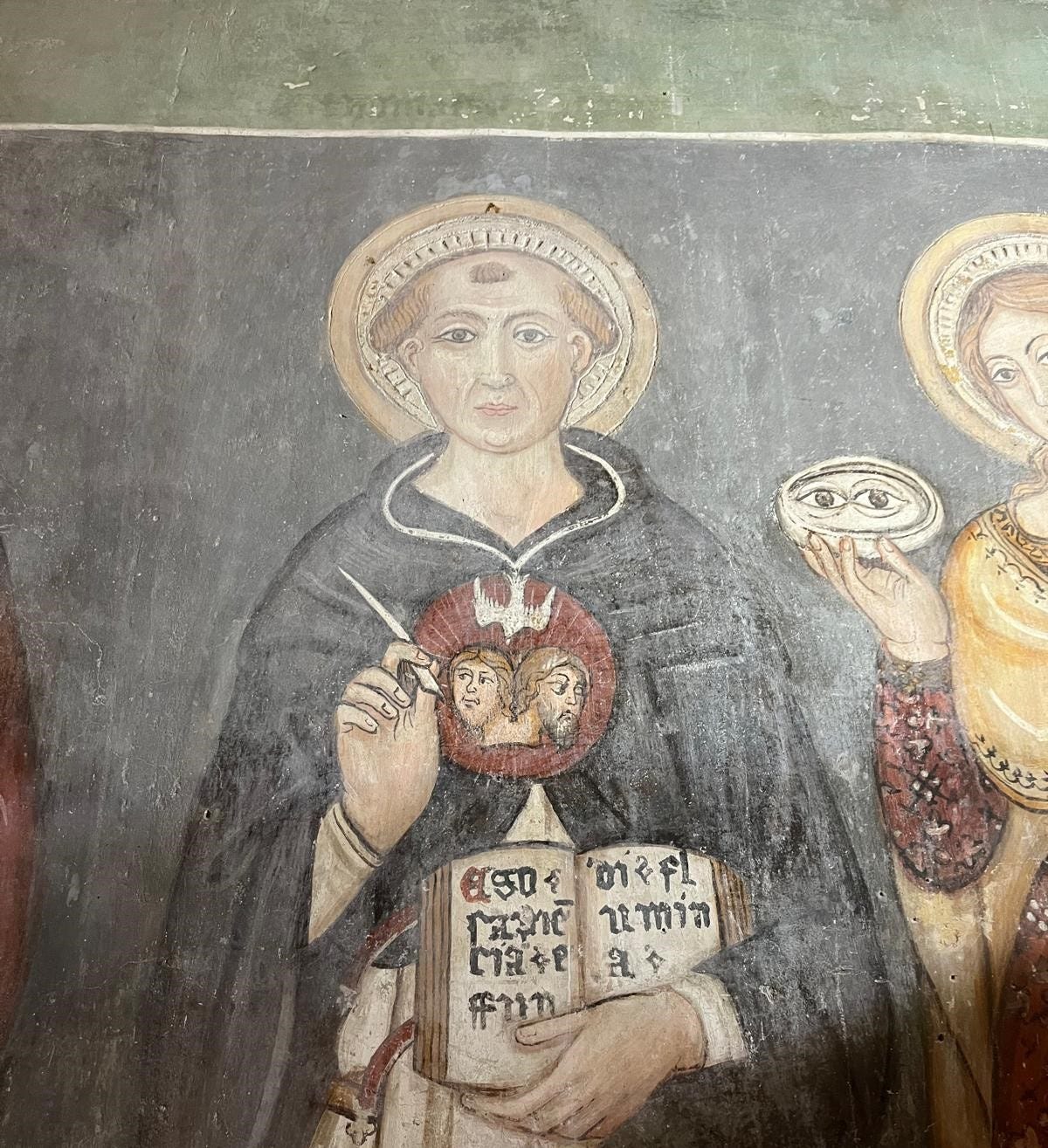Discovering Faith: How Belonging Leads to Belief
The Journey from Community to Personal Connection with God on Trinity Sunday
The Historical Significance of Trinity Sunday
If you had been around a hundred years ago, you would have noticed that today marked a new season in the Church's liturgical life. From now on, all the way to Advent, Sundays would have been marked by this feast: next week would have been the first Sunday after Trinity, followed by the second Sunday after Trinity. Some English universities, like Oxford, still use today’s feast to mark the third term before summer starts: Trinity Term. The connection with England is not by accident. Saint Thomas Becket first instituted the feast in the twelfth century to mark the day he was ordained as Canterbury's archbishop. After the martyrdom of Becket a few years later, the feast gained popularity all over Europe.
Understanding the Doctrine of the Trinity
Trinity Sunday, officially the Solemnity of the Most Holy Trinity, is traditionally a good day for priests to give an extensive sermon—almost a lecture—on the Trinity. But honestly, such a doctrinal sermon can always be summarised in three sentences:
There is only one God.
The Father, the Son, and the Holy Spirit are each God.
The Father, the Son, and the Holy Spirit are not the same.
There are no problematic words here. It all sounds straightforward until you start to think about it. And that, my friends, is something we Christians should do more often: think carefully about our faith.
From Believing to Belonging
Not so long ago, there was a time when thinking about your faith was not encouraged for ordinary people. You believed, you behaved in a certain way—went to Church, made signs of the cross—and thereby you felt that you belonged to a community that was not only local or international but cosmic, a living community of the Church on earth and in heaven with the community of saints.
Finding Faith Through Belonging
In our times, finding religion and faith has undergone a significant reversal. People first find a place, like this Church, and try it out. They come or check us out online, and they judge, and when they like it, they return. So, the journey starts by finding a sense of belonging. People actively engage with the community when this sense of belonging grows stronger. They stay for a chat afterwards, and they become volunteers. They join in saying the answers during the Mass. Thus, someone moves from mere belonging to behaving. Finally, by behaving in a new way, questions come up. Why are we doing this? What does it mean to say the Creed? How do I personally pray? What is the difference between incense and intercessions? Thus, a journey of questioning and learning starts. And, if you dare to trust in the Holy Spirit, such a journey ends up in belief and a personal relationship with Jesus.
The Heart of Our Faith: God's Gift to Humanity
The heart of our faith is that God wants to give us Godself in a way we humans can understand. The first reading (Deut. 4: 32-34, 39-40) tells us that He chose a specific people, Israel, to become a witness to His love and closeness to us. By keeping His commandments, Israel was to become a sign for the whole world that God is God in heaven above and on earth.
God's Closeness Through the Holy Spirit
In the second reading(Romans 8: 14-17), we find another image of God’s closeness to us. Saint Paul does not speak of a chosen people but about the importance of the Holy Spirit. Here, God’s nearness is as a father to his children, a father who cares about our struggles but wants the best for us.
The Closest Relationship: Jesus Christ
In the Gospel (Matthew 28: 16-29), we find the closest possible relationship between God and us in Jesus Christ. Jesus tells us that if we baptise people and teach them as He did, He will be with us always, until the end of time. This is much more than what was promised to the chosen people. It means our relationship with God is so close that it can be compared to a relationship between parents and children.
Looking Ahead: From Advent to the Second Coming
Finally, the Gospel, which once marked a liturgical season that lasts until Advent, already looks ahead. How? Well, during Advent, we often sing, "O come, O come, Emmanuel," while we wait for the birth of Jesus. The title “Emmanuel” means God with us. And so, when Jesus says He will be with us until the end of time, it completes the circle. Today, we say what we hoped for in Advent is true—the triune God came close to us in the Incarnation. On the other hand, today looks ahead to the second coming of Christ so that once again, God will be close to us, and we will be with God.
Conclusion: Trusting in God's Closeness
So, whether you came today as a believer, behaving in a certain way to belong to the community, or whether you found a place to belong, where you discover a new way of behaving that could lead you to faith, it does not matter. In the end, the only questions that matter are: do I trust God well enough to let Him come close to me so that He will be part of my life? And will I be open to discovering true happiness at the beginning of my eternal life in the here and now?
Sermon on Trinity Sunday 2024 preached before the congregation of the International Student Chaplaincy at the Maria van Jessekerk, Delft, the Netherlands.
Image: Fresco of Aquinas and the Trinity in the Dominican Monastery of S. Anna in Nocera Inferiore (Italy).




